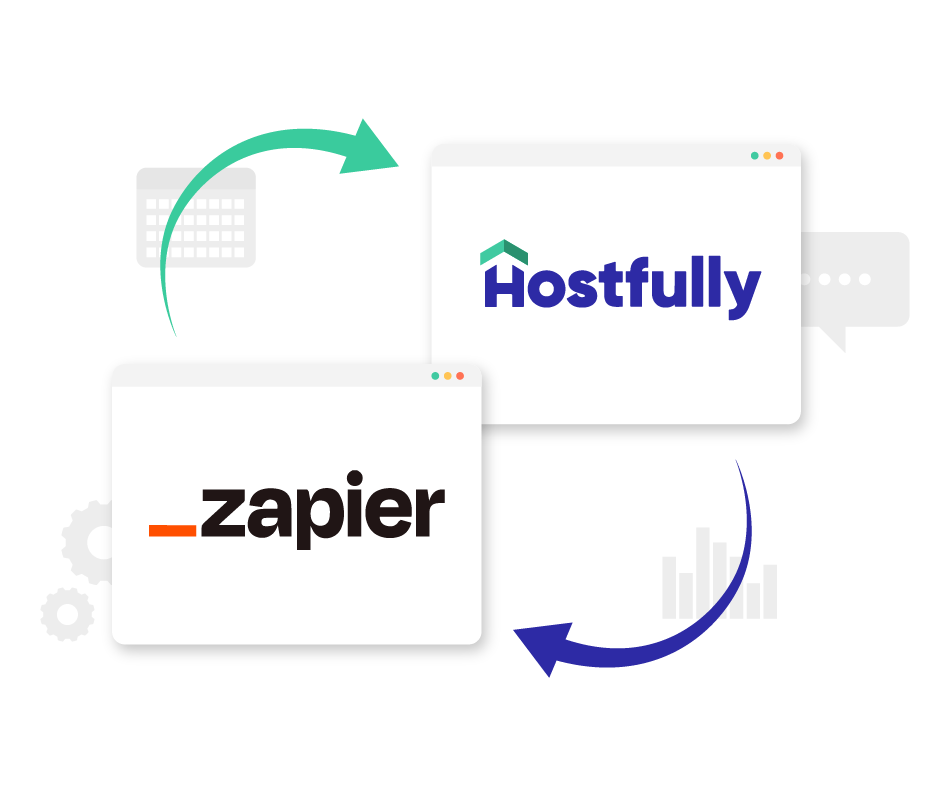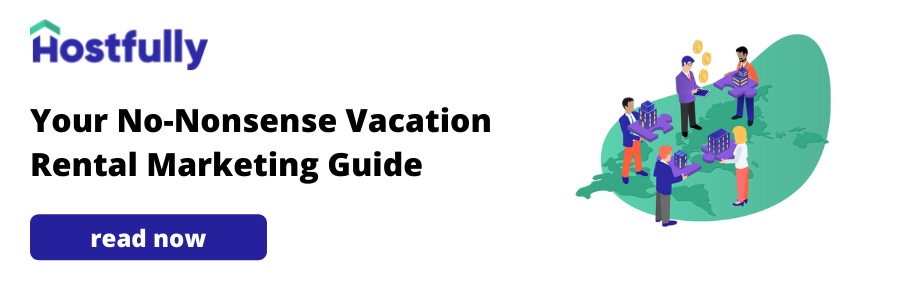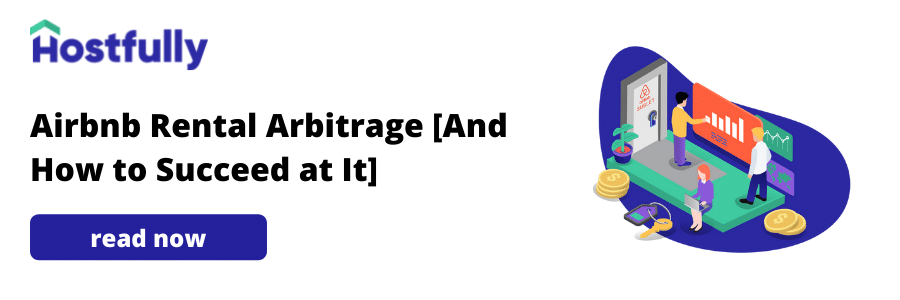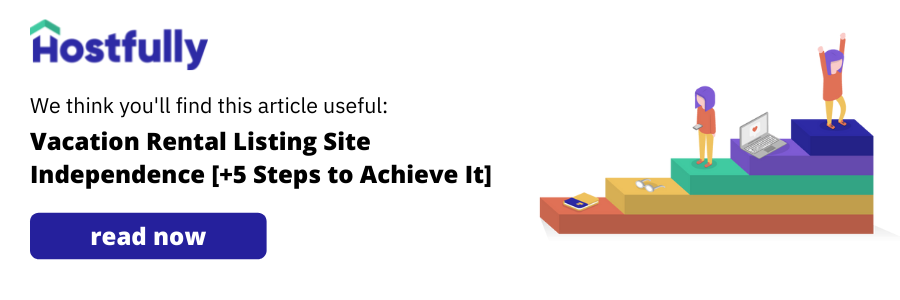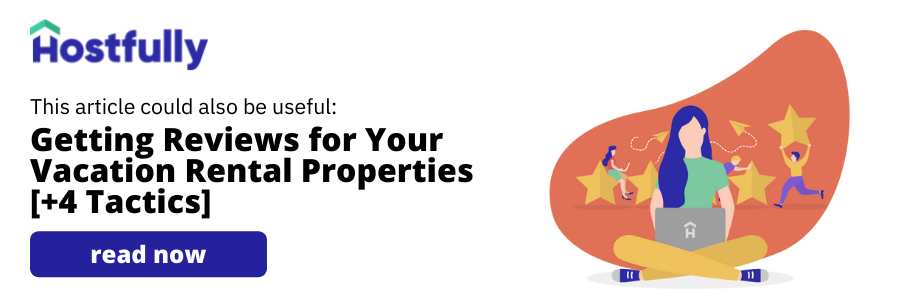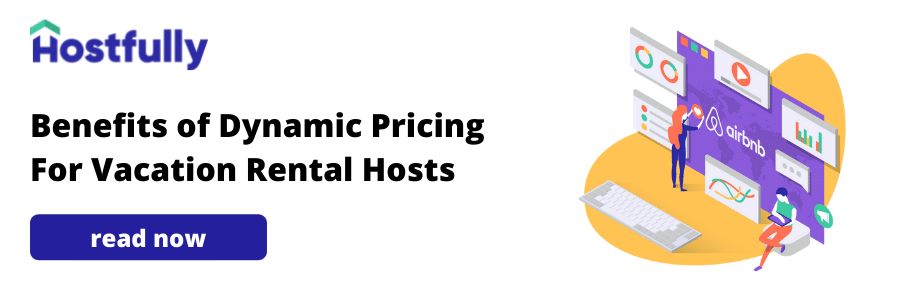We’ve all heard of Airbnb. It all started in 2008 when Joe Gebbia, Brian Chesky, and Nathan Blecharczyk were trying to make ends meet and dreaming big in San Francisco. From a startup in 2008 they’ve grown Airbnb into a giant in the vacation rental market. They’re the most popular worldwide platform for guests looking for a vacation rental property, and the one people think of first when starting to rent out properties. So how does Airbnb work for hosts, and how can you make it work for you and your vacation rental properties?
How does Airbnb work?
The platform is based on the sharing economy. The company itself doesn’t own a single piece of rental real estate. They act as a bridge between property owners and travelers looking for accommodation that isn’t a traditional hotel. Airbnb handles the payment and payout between host and guest. Finally, both sides review each other to build trust (and a reputation). This ensures that the community self-regulates itself and continues to provide a great experience for guests.
Other platforms existed before Airbnb but they didn’t invent the business model
So if Airbnb weren’t the first in the listing website game, how have they become so dominant? It’s all about the marketing and user experience. The founders got their marketing right, initially integrating with Craigslist to automate postings there. Perhaps just as importantly, they produced a personalizable product with an extremely simple user interface.
Simplicity is key
From the user’s point of view, the simplicity of the platform is key. Uploading property images and details is quick, easy, and free, and hosts only pay a service fee on actual bookings. Guests can search Airbnb listings for accommodation by date, the number of visitors, property type, price, amenities, and instant booking or 24-hour host response.
Leveraging AI
Airbnb has truly harnessed the power of Artificial Intelligence. AI-powered algorithms ensure the relevance of guests’ search results, as well as alert hosts if they have posted a pic upside-down. Hosts are even notified if a bathroom pic shows a shower that’s not in the listing. There’s also a risk algorithm to analyze guest and host activity and block suspicious behavior.
Taking the guesswork out of marketing
Airbnb is widely known and has a huge community of loyal customers. This helps hosts since they know they will get high visibility when they list their properties. Many hosts don’t use any other platform to advertise their vacation rental property. The two-way review system offers confidence on both sides, and communication is carefully managed by Airbnb itself.
A bridge and a barrier
Airbnb facilitates communication between the hosts and the guests through dedicated private messaging. These messages are monitored to prevent the exchange of telephone numbers and email addresses, protecting both parties’ security—as well as the platform’s revenue. By keeping this control, Airbnb guests can’t easily pass their cell phone number on to you and cut Airbnb out of the booking.
Simplified payments between host and guest
Another benefit Airbnb offers to both property owners and vacationers is the easy payment method. Taking commission from each, they allow payment through Paypal where its use is unrestricted. Their app is also integrated with both Apple Pay and Google Pay, and handles the check-out flow so clients on both sides of the transaction can clearly see all the cleaning fees, taxes, and any other additional costs.
The layer of separation between guest and host provided by Airbnb and the payment services offers an additional measure of security and confidence for both parties. And when you’re renting out your Airbnb property, security is always a top priority.
Fees and listing on Airbnb
The most common arrangement on Airbnb is that both hosts and guests pay per booking. Hosts pay 3% of the booking’s value and the guest service fee is around 14%, though there are some regional variations to these rules. An option where the host pays all of the fees is also available (although maybe not the best option for your business).
Some vacation rental property owners find the accumulation of fees has a negative impact on their business. And so they list on other sites, looking for independence from Airbnb.
What does it take to list an Airbnb rental?
Airbnb’s strength lies in its simplicity. Listing details include the size, location, and description of the property, together with what kind of rental is on offer, for example, whether the client will have a private room or the whole house. These details, the nightly rate, the host’s house rules and photos of the property are a bare minimum. Including information about the local area and adding other details—like personal recommendations—are always advisable to attract bookings.
But you don’t even need to own a vacation rental property at all to make Airbnb work for you. Did you know that you can rent and list at the same time? See our guide on rental arbitrage and explore how it all works. A word of warning: you really need to do your own homework here. Understand local regulations regarding what can and can’t be done with rental properties. Some areas, particularly in Europe, don’t allow this type of arrangement. Leaving the politics aside, it’s something that you need to get on top of.
How to be successful on Airbnb
With so many hosts and properties out there, how do you attract potential guests and ensure it’s profitable? Airbnb’s own Smart Pricing tool allows for price adjustment against some variables such as season, demand and location. That’s not the only option, and an alternative may be better depending on your property profile. Read our in-depth guide to dynamic pricing and smart pricing to decide which might work for you.
Price alone won’t, of course, make a guest click that “book” button. It’s important to get your listing right. After all, it doesn’t matter how beautifully designed your property is or how reasonable the rate is if your listing doesn’t get noticed. Your listing should be honest and detailed, highlighting any particular amenities that may be unique to your property or especially desirable. Make sure you are keeping your Airbnb account profile up to date so that you can build trust with potential guests.
Make sure the title is catchy and point out attractions or amenities that are close at hand so the guest can get to know the area. And it may seem self-explanatory, but choosing good photos that make your place look clean, tidy, and attractive is a must. In short, think like a guest—what would you want from your vacation experience? Airbnb’s own guide will help you get the listing description right.
Guest experience is everything
With reviews being so important on Airbnb, you need to think like a guest here, too. Giving your customers a great experience from the second they book to the moment they check out will secure five-star reviews and build both you and your properties a positive profile. There’s a lot to think about, but get it right from the start and you won’t have to worry later.
- Do you offer easy self-check-in? Do you have a welcome pack in place? Does it outline where everything is in the house, how appliances work and the WiFi code? Could you include a small welcome gift for guests on their arrival? This doesn’t have to be expensive but adds a human touch that is always appreciated.
- Is everything in good order? From clean, uncracked tableware to freshly laundered bedding and towels, toilet paper and toiletries. If this seems obvious then great, you’re already thinking about the fundamentals. Forgetting a small detail could mean the difference between a positive and negative review, and make a much greater impact on your business than you’d think.
- Provide recommendations for things to see and do in the area. Where are the best restaurants, the best places to take children, or the best shops for local produce? Think about partnering with local businesses to offer discounts, particularly if you have multiple properties in the same area. This type of wider thinking can offer important upselling opportunities for you (a little extra money in your pocket!), and add to the clients’ perceived value of the booking.
- The transaction isn’t over as soon as they hand back the key. Once guests check out, have you remembered to provide feedback? It’s important to share how they’ve been so this is visible to other hosts. It’s just as important to the guests, too, because a good rating for guests offers reassurance that later booking requests will be accepted.
We can’t overstate the importance of positive reviews. Read our essential guide to getting feedback from guests, and making sure they’re positive. It’s better than any paid marketing, as well as an important source of data on how your properties are perceived by clients.
Lean on the experience of others
The dominance of Airbnb has meant that a number of Facebook groups have sprung up for hosts, where they can exchange advice and experiences. Often these are old hands, with multiple properties and plenty of stories to tell, so join some of the groups like Airbnb Professional Hosts, Short Term Rental University, or Airbnb Host Network. There are many others, so have a good look around and talk to other people in a similar position.
Use tech to your advantage
Airbnb exists because of tech. And it can do more for you than just getting the listing out there and providing a platform for the bookings. With tech doing much of the heavy lifting, you can maximize your profits and streamline the process for you and the guests.
- Dynamic pricing: as mentioned, dynamic pricing can make a big difference to your income. While dynamic pricing apps aren’t free, some of them claim a possible boost of up to 40% on rental income. Do your research and find a reliable product that can back up its claims.
- Digital guidebook: providing guests with an introduction to where they’ll be staying beforehand not only makes for an improved customer experience, it’s a chance to upsell by alerting them to other products or services and connect them to local businesses. Check out our guide to getting the digital guidebook right for more on this essential tool.
- Property Management Platform: if you have more than one property, an effective PMP will help you scale the business with end-to-end solutions that take a great deal of the work out of your hands. Have a look at just what it can do for you and read some testimonials from happy PMP customers here. PMPs are a great DIY alternative to using management companies.
Once you’ve gotten your Airbnb listing up and running and you are constantly booking guests and getting good reviews you can look into more options that Airbnb offers such as superhost status and Airbnb plus.
Expanding beyond Airbnb and onto Vrbo and Booking.com
Airbnb may be a huge player, but they’re not the only show in town. Certainly, the largest vacation rental property owners all use a combination of Airbnb, Vrbo, Booking.com, and even their own dedicated websites to ensure maximum visibility.
If you have an entire home to rent
Vrbo has over 2 million listings in over 190 countries. So it’s a huge missed opportunity if you’re renting entire homes—their specialty—and your properties aren’t on there. Vrbo tends to be more focused on the property than on a hosting experience and the price isn’t visible to the customer until a final listing page detailing all costs. What’s more, payment protection is provided against fraudulent listings.
Scattering listings on as many sites as possible is not how to optimize your business and maximize income. An understanding of the different distribution channels and tools is necessary if you don’t want to waste time (and money) missing the target. To learn more about enhanced, multi-channel distribution for vacation rentals, download our dedicated report.
Create your own booking site
If you have enough properties and brand recognition, your own dedicated direct booking site may work for you. If you’re not an expert website designer then this is going to require some investment, but once it’s done you can showcase your own properties exclusively. That means no competition—and no middlemen.
Hostfully’s Property Management Platform is designed to integrate with all the major tools that power vacation rentals, from booking and services to payment processes and accounting. It can connect with your own bookings platform as well as the big players like Airbnb, and is fully scalable against the number of listings you need.
Not the end of the story
Airbnb is hugely successful and should be high up on your list when marketing your vacation rental properties. But it’s not as good as a PMP and doesn’t have as many capabilities. So while Airbnb is important, it should only form part of your broader strategy for success.

